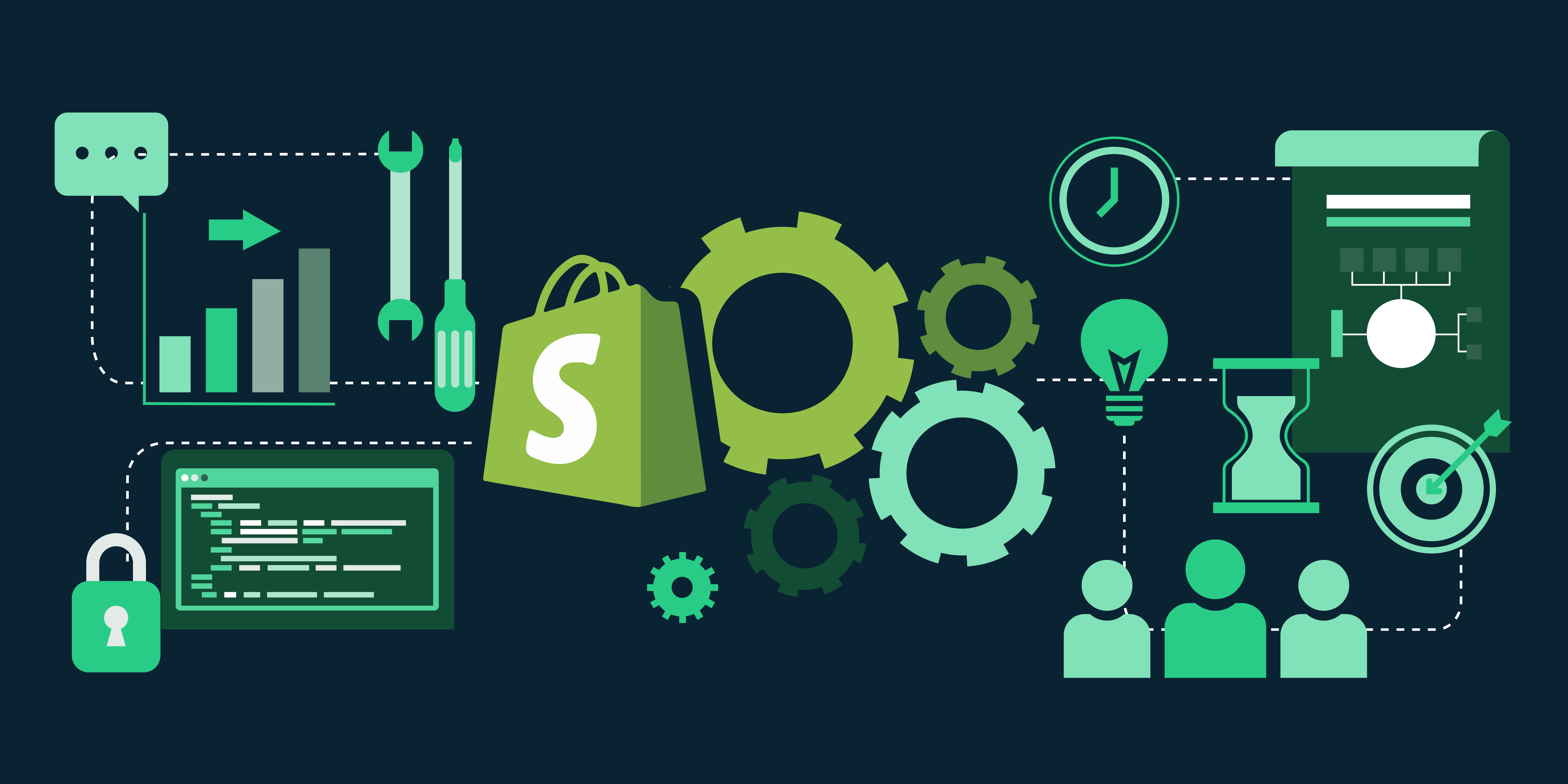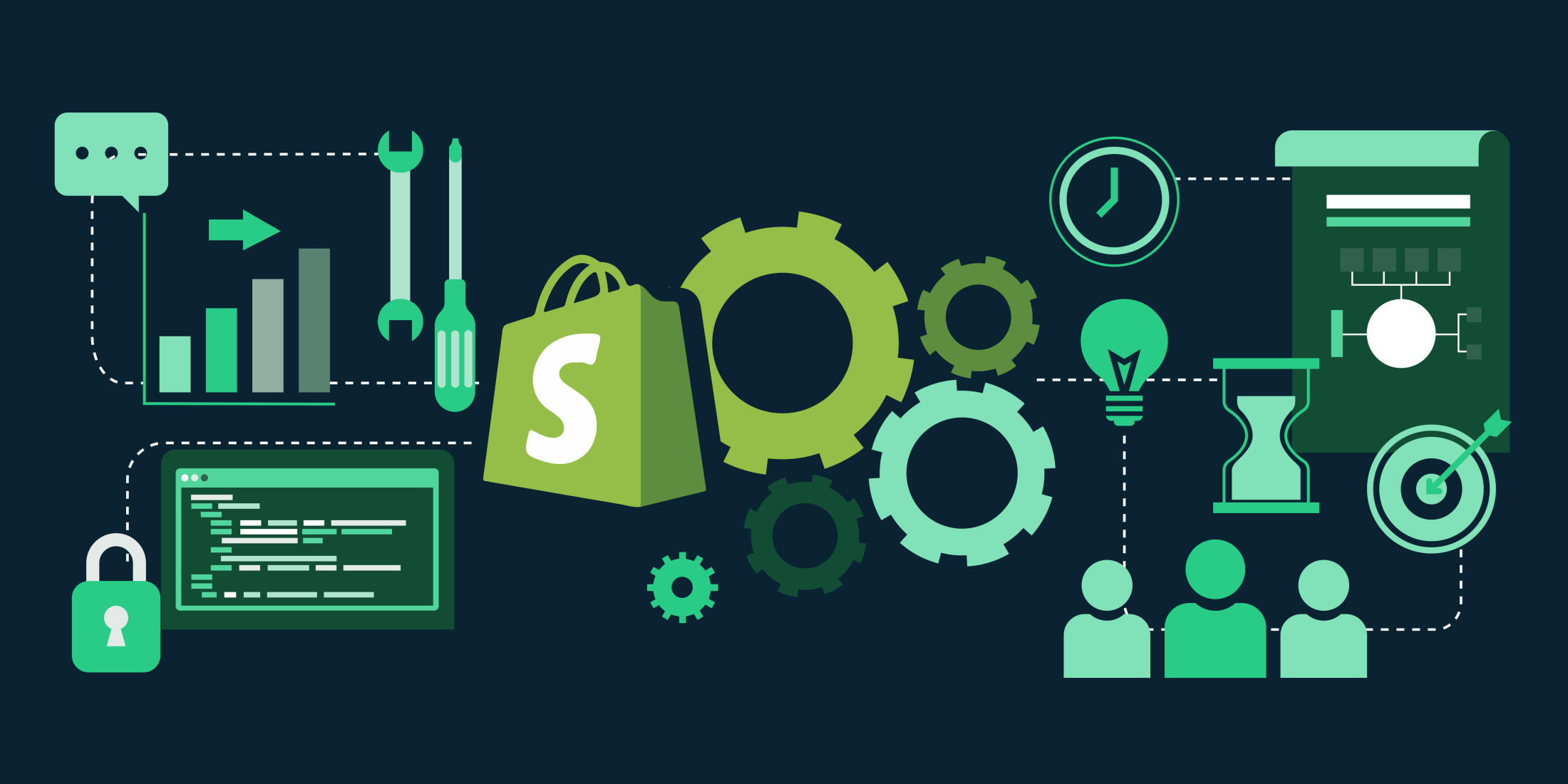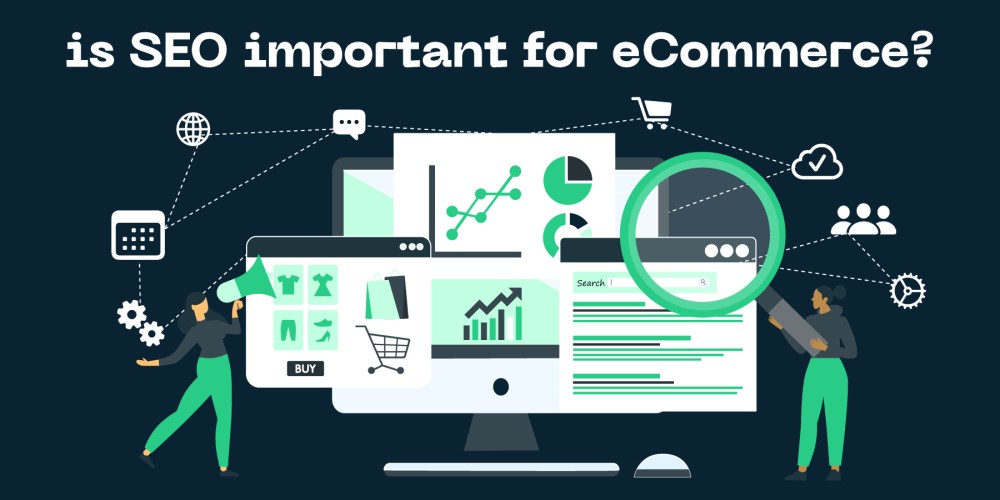Human VS AI: Battle in eCommerce Copywriting

Introduction to eCommerce Copywriting
Understanding eCommerce Copywriting
Understanding eCommerce copywriting is an essential part of any successful online marketing strategy. It is the art of crafting compelling written content that not only attracts potential customers but also persuades them to make a purchase. The core aim of eCommerce copywriting is to provide value to your customers, convince them of the benefits of your products or services, and ultimately turn them into loyal clients.
In the realm of eCommerce copywriting, there is an ongoing battle between human writers and Artificial Intelligence (AI) tools. Human copywriters bring creativity, emotions, and a personal touch to the table. They have the ability to understand and connect with the audience on a deeper level, which can be crucial in influencing the buying decision. However, it cannot be denied that AI tools are becoming increasingly sophisticated and efficient. They can churn out high volumes of content in a short period of time, with a consistency that is hard for human writers to match.
But, the question remains: Can AI truly replace the insight, intuition, and human touch that a professional copywriter provides? The answer may not be a simple "yes" or "no". While AI can deliver quantity, quality, and consistency, it may lack the ability to truly understand and connect with the emotional needs and wants of the consumer. The key could lie in leveraging the strengths of both, to deliver content that not only sells but also builds lasting relationships with customers.
Importance of Quality Copy in eCommerce
The world of eCommerce is becoming increasingly competitive. With the rise of numerous online businesses, standing out in this crowded market can be a challenge. One of the critical differentiators is the quality of eCommerce copywriting. The power of well-written, persuasive product descriptions and compelling call-to-actions can’t be underestimated. A good copy can directly influence the buyer’s decision, drive more traffic to your website, enhance your brand image, and ultimately, increase your conversion rate.
However, the ongoing debate is whether a human or Artificial Intelligence (AI) should write this copy. While AI is becoming a popular choice due to its ability to generate bulk content swiftly, it may fail to capture the subtleties, creativity, and emotion that a human writer can bring to the table. On the other hand, human writers, with their power of creativity and understanding of human emotions, can create a copy that resonates better with the audience, but it may take more time and resources than AI.
So, the vital question here is - Who wins the battle in eCommerce Copywriting - Human or AI? There’s no black and white answer to this. Both have their unique strengths and weaknesses. It ultimately depends on your specific needs, budget, and target audience. The ideal scenario might be a blend of both - leveraging AI for its efficiency and speed, and humans for their creativity and emotional understanding.
Human Copywriting in eCommerce
Advantages of Human Copywriting
As an eCommerce store owner or marketer, the power of human copywriting should not be underestimated. One of the primary advantages of human copywriting is its ability to create unique, creative, and engaging content. Unlike AI, humans have the ability to understand subtle nuances, sarcasm, and humor, which can make copy more compelling and enjoyable for the reader.
Emotional Connection: Human writers can craft copy that resonates with readers on an emotional level. They can tap into the emotions, desires, and needs of the target audience in a way that AI simply cannot. This ability to connect emotionally can lead to increased trust, brand loyalty, and ultimately, higher conversion rates.
Adaptability: Human copywriters can easily adapt to changes in market trends, customer behaviors, and business goals. They can take new information, analyze it, and then tweak their copy to better suit the changing landscape. AI, on the other hand, may struggle to adapt to these rapid changes and may produce outdated or irrelevant copy.
Limitations of Human Copywriting
While human copywriting in eCommerce has its unique benefits, it also comes with certain limitations that can affect the efficiency and productivity of your eCommerce business. One of the key drawbacks is the time constraint. Unlike AI, human copywriters require considerable time to research, draft, and refine their work. Especially in the fast-paced eCommerce industry, where time is of the essence, these delays can significantly impact your business performance.
Another limitation is the risk of human error. Even the most experienced copywriters can make mistakes or overlook critical details. These errors, if left unchecked, can hurt your brand image and lower your conversion rates. Furthermore, the quality of work can vary greatly from one copywriter to another. This lack of consistency can lead to an uneven brand voice, which can confuse your target audience and weaken your brand identity.
Lastly, human copywriters, while experts in their field, may not always have in-depth knowledge about your specific products or the ever-evolving eCommerce landscape. This can limit their ability to produce engaging and relevant content that resonates with your audience and drives sales. While these limitations do not undermine the value of human copywriting, they do highlight the growing importance of considering AI as a supplement or even an alternative solution in eCommerce copywriting.
AI in eCommerce Copywriting
Benefits of AI Copywriting
AI in eCommerce copywriting brings numerous benefits. The first one is a significant increase in efficiency. AI is capable of generating high-quality content in a fraction of the time it takes a human copywriter. This is particularly advantageous for eCommerce businesses that have thousands of product descriptions to write and update. With AI, you can have unique and compelling product descriptions ready in no time, freeing up valuable time for other important tasks.
Another major advantage of AI copywriting is its ability to perform A/B testing quickly and accurately. AI can generate multiple versions of the same copy and test them to see which one performs better. This takes the guesswork out of copywriting, allowing eCommerce businesses to optimize their content based on solid data. This not only results in higher conversion rates but also improved customer experience as the content becomes more tailored to the audience’s preferences.
The use of AI in copywriting also ensures consistency across all platforms. Consistency in brand voice and style is crucial in eCommerce, and AI is capable of maintaining this consistency across thousands of product descriptions, blogs, and social media posts. Essentially, AI can help you create a strong, consistent brand image that resonates with your customers and makes your eCommerce store stand out from the competition.
Challenges of AI Copywriting
While AI has been making strides in eCommerce copywriting, there are still significant challenges that need to be addressed. One of the most significant issues involves the level of creativity and originality that AI can bring to the table. AI typically generates copy based on pre-existing templates and patterns, which can sometimes lead to generic or repetitive content. This is especially a hurdle when you’re trying to create a distinctive and engaging voice for your brand.
Another challenge is AI’s inability to understand the nuances of human emotions and context. While it can learn to mimic human language and tone, it lacks the ability to genuinely connect with the audience on a deeper, emotional level. This lack of emotional intelligence can result in content that feels cold, impersonal, or out of touch with the target audience.
Finally, AI’s dependency on data can be a double-edged sword. While it can process and analyze vast amounts of data quickly, the quality of the output heavily relies on the quality of the input. If the input data is biased or inaccurate, the AI could generate misleading or inappropriate content. In contrast, a human copywriter can apply their judgement and personal experience to create more relevant and engaging content.
Comparing Human and AI in eCommerce Copywriting
Strengths and Weaknesses
In terms of strengths, humans have the advantage of understanding and relating to emotions, cultural nuances, and idiomatic expressions, which can be a critical aspect in persuasive copywriting. Human writers can craft narratives that resonate with the reader on a personal level, evoking emotions that drive purchasing decisions. They can also rapidly adapt to changing trends, new information, and feedback from customers. On the other hand, AI excels in speed, scalability, and consistency. AI can generate multiple versions of a text in mere seconds, allowing for large-scale personalization. This technology can also work 24/7, providing constant support to an e-commerce platform without suffering from fatigue or burnout.
However, both human and AI copywriters have their own weaknesses. Humans, while creative and empathetic, may struggle with efficiency and consistency. Depending on the workload, a human writer can get tired, make errors, or become inconsistent in their writing. In contrast, while AI is efficient and consistent, it lacks the ability to understand and replicate human emotion effectively. AI might generate copy that feels impersonal or out of touch with the reader. Furthermore, AI’s ability to adapt to new trends and cultural nuances is limited compared to a human writer."
In conclusion, the choice between human and AI copywriting really boils down to your specific needs and goals. Consider the strengths and weaknesses of each option carefully before making a decision. Remember that a blend of human creativity and AI efficiency might be the best approach for your e-commerce platform."
Case Studies of Human vs AI
In the digital world of eCommerce, the power of effective copywriting cannot be overemphasized. The competition is not only between businesses but also between human and AI-driven copywriting. The comparison between the two reveals interesting insights.
Human copywriters come with a wealth of experience, creativity, and the ability to think out of the box. They have the knack to understand customer needs, preferences, and emotions. This enables them to write compelling and persuasive copy that resonates with the target audience. However, human copywriters can be expensive and may not always produce consistent results. Also, their productivity can be impacted by factors like writer’s block and workload.
On the other hand, AI copywriters present a different kind of efficiency. They are capable of generating copy at an unprecedented speed, ensuring high productivity. AI tools leverage data and algorithms to produce copy that’s optimized for conversion. This not only saves time but also reduces the risk of human error. However, it’s important to note that AI may lack the emotional intelligence and creative flair a human writer can bring to the table.
So, the choice between human and AI in eCommerce copywriting depends on various factors such as budget, volume of content needed, and the level of creativity required. In the end, a balance between the two approaches can provide the best results. It is essential for eCommerce store owners and marketers to continually evaluate and adjust their strategy to maximize their conversion rate.
Conclusion and Future of eCommerce Copywriting
How AI is Changing the Game
In conclusion, the landscape of eCommerce copywriting is shifting profoundly due to the integration of Artificial Intelligence technology. AI has started to demonstrate its potential as a game-changer, enabling a more streamlined, efficient, and targeted approach to copywriting. Unlike humans, AI can generate content swiftly and in bulk, without sacrificing the quality or relevance. It is capable of analyzing vast amounts of data and producing tailored content that resonates with specific customer groups, thereby significantly enhancing the effectiveness of eCommerce marketing strategies.
However, despite its impressive capabilities, AI is not poised to replace human copywriters completely. The human touch in copywriting, characterized by creative flair and emotional intelligence, remains an essential element that AI cannot entirely replicate. This blend of human creativity and AI efficiency gives rise to a powerful synergy that can revolutionize eCommerce copywriting.
Looking ahead, the future of eCommerce copywriting is likely to be a balanced blend of AI and human input. AI will handle bulk content generation, data analysis, and personalization, while humans will oversee strategy, provide creative direction, and maintain the emotional connection with the audience. Embracing this hybrid approach can unlock new levels of success for eCommerce store owners and marketers, giving them a competitive edge in an increasingly digital marketplace.
How to Leverage both Human and AI in eCommerce Copywriting
In conclusion, eCommerce copywriting is no longer a battle between humans and AI, but rather a collaborative effort that leverages the strengths of both. Human creativity and understanding of the subtle nuances of language cannot be overlooked. However, AI’s ability to analyze vast quantities of data and generate copy at scale renders it an indispensable tool in the modern eCommerce landscape. Store owners and marketers should thus focus on harnessing the power of both, to maximize their conversion rates.
Human copywriters bring an emotional touch to the copy, understanding customer needs, and personalizing the copy to resonate with the target audience. On the other hand, AI brings speed, efficiency, and scalability to the table, capable of producing vast amounts of copy in a fraction of the time it would take a human. AI also excels in analyzing customer behaviour patterns and tailoring copy based on the analysis.
Looking ahead, the future of eCommerce copywriting will be shaped by this union of human creativity and AI efficiency. By learning to leverage both effectively, eCommerce companies can ensure that their copy is not only engaging and persuasive, but also highly personalized and optimized for their target audience. By doing so, they can significantly enhance their conversion rates and ultimately, their bottom line.



